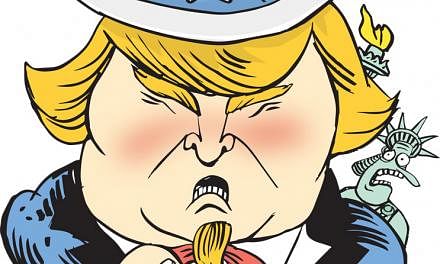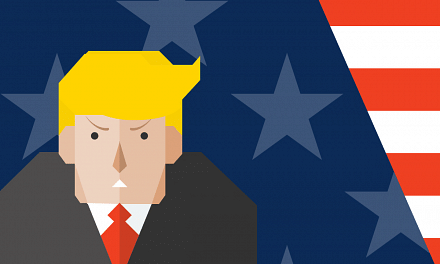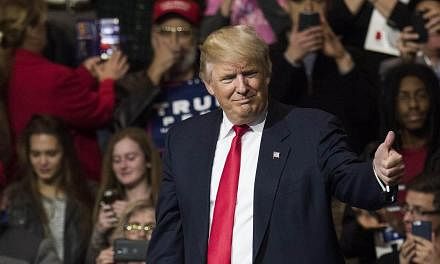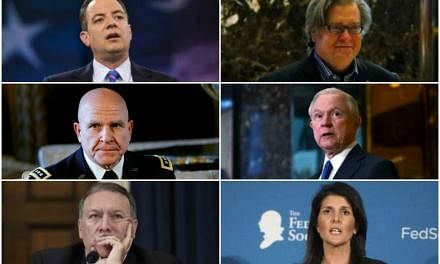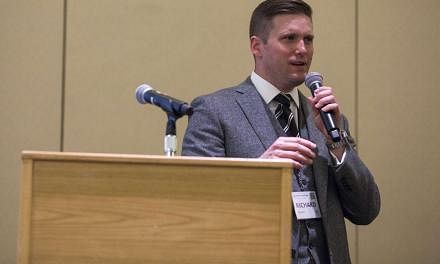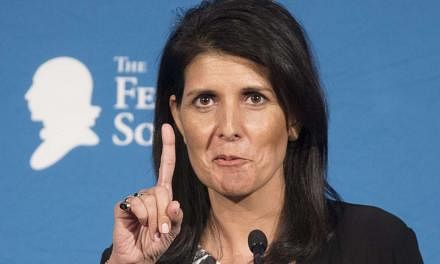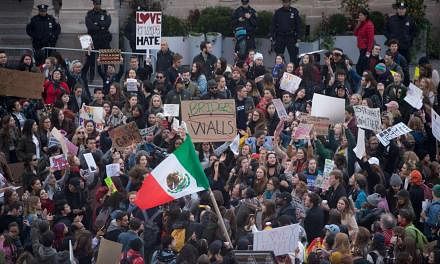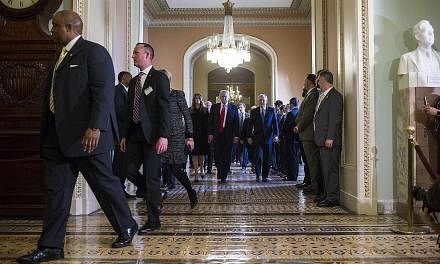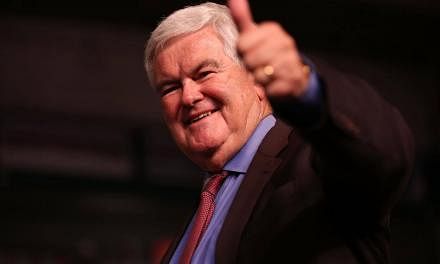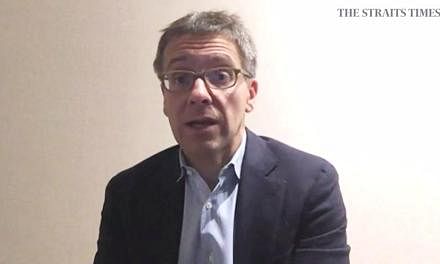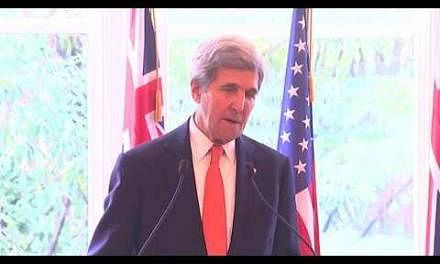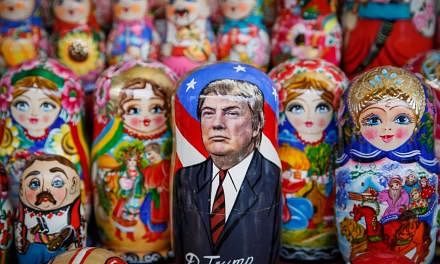BERLIN (REUTERS, NYTIMES, AFP) - Governments from Asia to Europe reacted with stunned disbelief on Wednesday (Nov 9) to the victory of Donald Trump in the US presidential election, while populists hailed the result as a triumph of the people over a failed political establishment.
German Defence Minister Ursula von der Leyen, an ally of Chancellor Angela Merkel, described the result as a "huge shock"and questioned whether it meant the end of "Pax Americana", the state of relative peace overseen by Washington that has governed international relations since World War Two.
French Foreign Minister Jean-Marc Ayrault pledged to work with Trump but said his personality "raised questions" and he admitted to being unsure what a Trump presidency would mean for key foreign policy challenges, from climate change and the West's nuclear deal with Iran to the war in Syria.
"Looks like this will be the year of the double disaster of the West," former Swedish foreign minister Carl Bildt said on Twitter, pointing to Britain's vote in June to leave the European Union. "Fasten seat belts," he said.
Meanwhile, right-wing populists from Australia to France cheered the result as a body blow for the political establishment. "Their world is falling apart. Ours is being built," Florian Philippot, a senior figure in France's National Front (FN), tweeted.
Jean-Marie Le Pen, the founder of the party and father of its leader Marine, said: "Today the United States, tomorrow France!"
Beatrix von Storch, deputy leader of the anti-immigrant Alternative for Germany (AfD) party, said: "Donald Trump's victory is a sign that citizens of the western world want a clear change in policy."
During the US election campaign, Trump expressed admiration for Russian President Vladimir Putin, questioned central tenets of the Nato military alliance and suggested that Japan and South Korea should be allowed to develop nuclear weapons to shoulder their own defence burden.
Putin in a statement congratulated Trump for his victory, adding that he hoped to work with Trump to improve relations, the Kremlin said.
Putin "expressed hope for mutual work on bringing US-Russia relations out of their critical condition". He added that "building constructive dialogue" would be in the interests of both countries and the world community.
US ally Japan vowed that the two countries would maintain their close relationship. "I express my heartfelt congratulations on your election as the next president of the United States," Japanese Prime Minister Shinzo Abe said in a statement. "Japan and the United States are unshakeable allies connected by common values such as freedom, democracy, basic human rights and rule of law," he added.
Concern in Japan, a close security ally of the US and a major trading partner, had grown during the campaign on Trump's opposition to the Trans-Pacific Partnership free trade agreement. Abe also called for Tokyo to pay more to support the two countries' security alliance.
South Korea's government officials convened a meeting to discuss the US election. The South's ruling party chief cited the defence minister as saying the deployment in South Korea of the US military's THAAD system, designed to counter North
Korea's missile threat, would go ahead as planned.
Saenuri Party policy chief Kim Gwang Lim said plans for the deployment of the Terminal High Altitude Area Defence anti-missile system were near complete. But the South Korean government also expressed concerns Trump may make unpredictable proposals to North Korea over the isolated country's nuclear weapons programme.
Elsewhere in Asia, Australia said it would need to "engage with the new administration very early, very quickly, and in a most constructive way to talk about the strategic interests that the US has in the Asia Pacific," Foreign Minister Julie Bishop told Sky Television.
In the Philippines, President Rodrigo Duterte, who had recently pivoted to China, congratulated Trump on the win and said he looks forward to an "enhanced Philippines-US relations anchored on mutual respect, mutual benefit and shared commitment to democratic ideals and the rule of law."
Indonesian President Joko Widodo said Trump's victory wouldn't derail relations between both countries. "Our relationship will remain good, especially our trade and investment relationship," he said.
In Kuala Lumpur, Malaysian Prime Minister Najib Razak congratulated the Republican, saying Trump had appealed to Americans who wanted to see the US less embroiled in intervention abroad. "His appeal to Americans who have been left behind - those who want to see their government more focused on their interests and welfare, and less embroiled in foreign interventions that proved to be against US interests - have won Mr Trump the White House," Najib said in a statement.
Trump has also vowed to undo a global deal on climate change struck by world powers in Paris last year and renegotiate the deal between Teheran and the West, which eased sanctions against the Islamic Republic in exchange for allowing close monitoring of its nuclear programme.
In response, Iran's foreign minister Mohammad Javad Zarif called on Trump to stick to international accords. "Every US president has to understand the realities of today's world. The most important thing is that the future US president sticks to agreements, to engagements undertaken," he said in Romania.
Many Western governments, however, are unsure whether Trump, a real estate mogul and former reality TV star with no government experience, will follow through on his campaign pledges, some of which would turn the post-war order on its head.
"We're realising now that we have no idea what this American president will do if the voice of anger enters office and the voice of anger becomes the most powerful man in the world," Norbert Roettgen, a conservative ally of Merkel and head of the German parliament's foreign affairs committee, told German radio. "Geopolitically we are in a very uncertain situation."
Prominent historian Simon Schama described a Trump victory and Republican control of both the Senate and US House of Representatives as a "genuinely frightening prospect". "Nato will be under pressure to disintegrate, the Russians will make trouble, 20 million people will lose their health insurance, climate change (policies) will be reversed, bank regulation will be liquidated. Do you want me to go on?," Schama told the BBC. "Of course it's not Hitler. There are many varieties of fascism. I didn't say he was a Nazi although neo-Nazis are celebrating."
